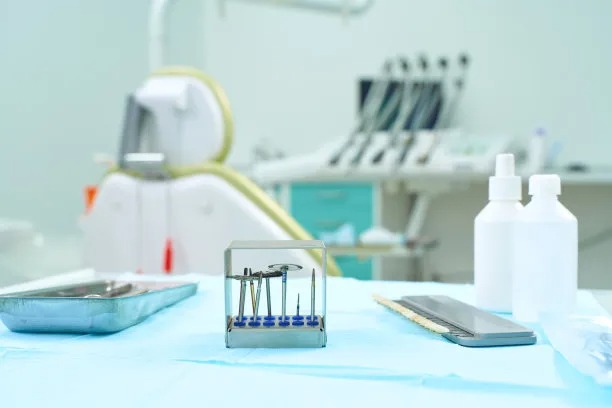Summary: Dental implantation is a significant procedure that offers numerous benefits, but to ensure optimal results and a smooth recovery, patients must adhere to essential guidelines and precautions beforehand. This article will delve into four crucial aspects: the importance of pre-operative consultations, necessary lifestyle adjustments, understanding materials and procedures, and the significance of aftercare planning. By following the advice outlined in this article, patients can prepare themselves effectively for dental implantation, enhancing both the outcome and the overall recovery experience.
1. Importance of Pre-operative Consultations

Before undergoing dental implantation, it is crucial to have thorough consultations with your dentist or oral surgeon. This initial meeting should cover a comprehensive evaluation of your oral health and any underlying conditions that could affect the success of the procedure. The dentist will assess your jawbone density, gum health, and overall medical history to ensure you are a suitable candidate for implants.
Furthermore, discussing your expectations and concerns during the pre-operative consultations can provide clarity. This is an opportunity to ask about the different types of implants available and how they align with your specific needs. It is essential to establish a trusting relationship with your dental provider, as this will facilitate better communication and understanding throughout the process.
Lastly, pre-operative consultations should also include discussions about potential risks and complications associated with dental implants. Being informed can help you make educated decisions and take necessary precautions to mitigate risks and enhance your chances of a successful outcome.
2. Necessary Lifestyle Adjustments
Making necessary lifestyle adjustments is vital for preparing for dental implantation. One of the primary adjustments is dietary changes. Patients are advised to maintain a balanced diet rich in vitamins and minerals, particularly calcium and vitamin D, as these nutrients aid in bone healing and regeneration. Avoiding foods that can affect oral health, such as sugary snacks and acid-rich beverages, is also recommended.
In addition to dietary changes, habits such as smoking should be addressed. Smoking can significantly impact blood circulation and healing, potentially leading to implant failure. Thus, quitting smoking or at least reducing consumption before the procedure is crucial for optimal recovery.
Another lifestyle change involves maintaining proper oral hygiene. Patients should ensure that their teeth and gums are in excellent condition before the procedure. Regular brushing and flossing, along with professional cleanings, can help prevent infections that might complicate the implantation process.
3. Understanding Materials and Procedures
Understanding the materials used in dental implants is essential for patients to make informed decisions. Most dental implants are made from titanium, a biocompatible material that integrates well with bone. Knowing the benefits and limitations of different materials can help patients align with their personal values and preferences regarding safety and longevity.
Its also important to familiarize yourself with the procedure itself. Dental implantation typically involves several stages, including implant placement, healing, and attachment of the crown. Being aware of what to expect at each stage can minimize anxiety and foster a more comfortable experience.
Additionally, discussing sedation options with your dental provider can further alleviate fear or discomfort during the procedure. Understanding whether local anesthesia, sedation, or general anesthesia will be used helps set realistic expectations for the appointment.
4. Significance of Aftercare Planning
Aftercare planning is crucial to ensure a successful recovery post-implantation. Patients should ask about pain management strategies and follow post-operative instructions carefully to minimize complications. Medication for pain relief or infection should be taken as prescribed by your dentist.
Another key aspect of aftercare is scheduling follow-up appointments. Regular visits allow your dentist to monitor the healing process and address any issues that may arise. These appointments are vital in ensuring that the implant is integrating with the bone correctly.
Finally, continuing to practice good oral hygiene after the procedure cannot be overstated. Adhering to proper brushing and flossing habits, along with regular dental check-ups, will maintain the health of both the implant and surrounding teeth, ultimately ensuring long-term success.
Summary:
In conclusion, preparing for dental implantation involves multiple crucial steps that encompass pre-operative consultations, lifestyle adjustments, understanding the dental materials and procedures, as well as effective aftercare planning. By adhering to these guidelines, patients can significantly increase their chances of a successful procedure and a speedy recovery, ultimately leading to a healthier smile.
This article is compiled by Vickong Dental and the content is for reference only.
Vickong Dental
Vickong Dental is a large medical group established in Hong Kong in 2008 by professors from well-known medical universities in Guangdong and Hong Kong, as well as medical doctors from key national '985' universities (including Master's supervisors and senior professors). The chain of branches brings together expert dentists with PhDs and Master's degrees from Hong Kong and Mainland China, committed to providing high-quality dental treatment.
"Vickong Dental Practices the University Motto of 'Healing and Serving Society,' with a Stable Operation for Sixteen Years. It Has Been honored with Hong Kong Enterprise Leaders's Choice,' and is a Global Trusted Implant Center for the Nobel Implant System. Recommended by Hong Kong Metro Broadcast and Guangdong Television, it Serves Customers from Over Thirty Countries and Regions, Gaining the Trust and Favor of Citizens from the Guangdong-Hong Kong-Macau Greater Bay Area and Surrounding Cities.

Thousands of customers' unanimous praise
The most recognized and highly recommended dental service by customers in the Guangdong-Hong Kong-Macau Greater Bay Area
We Ensure You Receive Detailed Care and Attention Here
Hong Kong standards, Shenzhen prices, Your Trusted English-speaking dentists

Vickong Dental Medical-Grade Instrument Disinfection Process
Vickong Dental Medical-Grade Instrument Disinfection Process

Vickong Dental Chain: A Warm and Comfortable Environment for Treatment






Appointment Hours

Q&A
Why choose Vickong Dental?
Vickong Dental practices the university motto 「Medicine to Benefit Society」, with each branch bringing together highly qualified dentists with doctoral and master’s degrees from Hong Kong and the Mainland, and has maintained seventeen years of steady operation。Recipient of 「2024 Hong Kong Enterprise Leaders Brand」, 「2025 Hong Kong Enterprise Leaders Brand」, a Nobel Biocare Global Trusted Implant Center, and a brand recommended by Metro Radio Hong Kong and Guangdong TV。
To date, we have served customers from more than thirty countries and regions,earning exceptionally high word-of-mouth recognition and trusted recommendations from residents across the Guangdong-Hong Kong-Macao Greater Bay Area and surrounding cities
We have eight major branches in Zhuhai、Shenzhen,and a consultation and service assurance center in Hong Kong,so you can book a free consultation at any time for any questions,which is very reassuring.
If I do not accept the quotation after the CT scan, will I be charged??
No! As long as the actual treatment has not started, you will not be charged any fees.
Will there be any additional charges during the treatment process?
No, there won’t be any additional charges. Before treatment begins, we will clearly explain the treatment plan and its corresponding fees. Only after the patient agrees and signs the consent form will we proceed with the dental service.
Can I pay in Hong Kong dollars?
Yes. Vickong Dental accepts payment in Hong Kong dollars. The amount will be converted based on the exchange rate of the day, and the applicable rate will be clearly communicated to you in advance.
Can I reschedule my appointment at any time?
Yes. Please contact us via **WeChat** or **WhatsApp** as early as possible, providing your original appointment time and details, along with your preferred new date and time slot for rescheduling.













